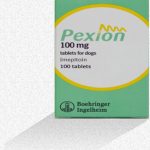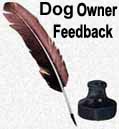 “Everything Old Is New Again”
“Everything Old Is New Again”
NeuroCare™ For Your Epileptic Or Forgetful Dog
Purina’s High MCT (Medium Chain Triglyceride) Diet
Ron Hines DVM PhD
Nestlé Purina recently introduced NeuroCare™, a dog food that they market as an aid in the control of seizures in epileptic dogs – as well as beneficial to memory retention in elderly forgetful canines.
The NeuroCare™ diet relies on a theory that medium chain triglyceride oils (MCTs), the ones found in coconut oil (15%), palm kernel oil (7.9%), cheese (7.3%), milk (6.9%) butter (6.8%) and yogurt (6.6%) have beneficial effects in controlling seizures of dogs with drug-resistant epilepsy. (read here & here) There are also some preliminary studies that these oils might improve the mental abilities of people suffering from Alzheimer’s disease. (read here) These are also possible attributes of ketogenic diets. (read here)
So veterinary nutritionists decided to see if the same thing applies to epileptic dogs. One UK study showed positive effects when a high medium chain triglyceride diet was fed. (read here) More recent studies confirmed that a diet rich in MCT oils aided in reducing the frequency of epileptic seizure and improved cognitive function in some elderly dogs. (read here & here)
NeuroCare™ is not a ketogenic diet, as people tend to define them. Compared to Nestlé Purina’s standard One Chicken & Rice™ dog food, their chicken and corn based NeuroCare™ has more protein (29.0% vs 26.0%), a bit less fat (15.0% vs 16.0%), less carbohydrate (40.37 vs ~49%), the same crude fiber (3.0%), more zinc (285 mg/kg vs 150 mg/kg), more vitamin A (15,000 iu/kg vs 13,000 iu/kg), more vitamin E (500 iu/kg vs 250 iu/kg) and omega 6 fatty acids (2.06% vs 1.6%). NeuroCare™ has 0.63% omega-3 fatty acids. The amount of omega-3 in their standard chicken & rice diet is not given. The NeuroCare™ formula meets AAFCO dog food standards for any dog of any age. (Revolt in the kitchen?) When I first checked the NeuroCare ingredient percentages online, those were the levels given. But when I checked them a year later the figures had changed. So go by whatever is written on the bag. Other than those differences, the primary and most important difference in the NeuroCare recipe is that it’s fat/oil content contains a considerable amount of medium-chain triglyceride vegetable oils (MCTs) that replace the animal fat that is usually in dog food (often chicken fat). In NeuroCare™ Fish oil, a source of EPA and DHA, replaces the remainder of the fat/oil in their product.
Purina markets NeuroCare™ as being rich in EPA and DHA, omega-3 fatty acids (PUFAs) as well as MCTs to help support “brain health” and adds extra antioxidant Vitamins E & C to “support a healthy immune system”. Not all research supports those statements but some does. (read here) However the prestigious Cochrane Review reviewed all PUFA studies and found no real evidence that omega-3 PUFAs slowed or prevented mental decline. (read here) Cochrane’s evaluation of the effectiveness of PUFAs in improving refractory epilepsy in humans was better. (read here) As far as PUFA’s positive effects on canine epilepsy, one Brazilian veterinarian thought that Omega-3 fatty acids helped his Great Dane patient (read here); but a UK trial in 15 epileptic dogs found PUFAs ineffective. (read here) Purina also make the “brain health” claim – accompanied by glowing testimonials – for their Pro Plan Bright Mind Adult 7+ dog food. But they provide no evidence or data to back that up either. Hills a competitor of Purina, once did a study that added extra MCTs, fish oil and carnitine to their dog food – probably during the development of their “Age Defying” Adult 7+ and Adult 11+ dog food line. However, they ended up only increasing the carnitine level. I am unsure why they did that because quality meat is rich in carnitine. (read here) Trends in dog food composition usually follow closely behind the latest human dietary trends and fads you read about in the popular press.
In an exchange of emails, a leading research physician in dietary methods of epilepsy control pointed out to me that the carbohydrate content of NeuroCare™ was quite high if Purina was attempting to shift brain metabolism from carbohydrates to fats. But he thought the diet might be useful based on its high MCT content alone. I explained to him that it is the carbohydrate starch in dog and cat foods that provides the necessary “glue” to bind the kibble together during the baking process. The fat is sprayed onto a dog kibble after baking. So perhaps adding a ketogenic amount of fat to the dog kibble and dropping its carbohydrate content would not have been feasible.
So, Give NeuroCare™ a try and let me know how well it works.
********************************************************************************
You are on the Vetspace animal health website
Visiting the products that you see displayed on this website help pay the cost of keeping these articles on the Internet.




